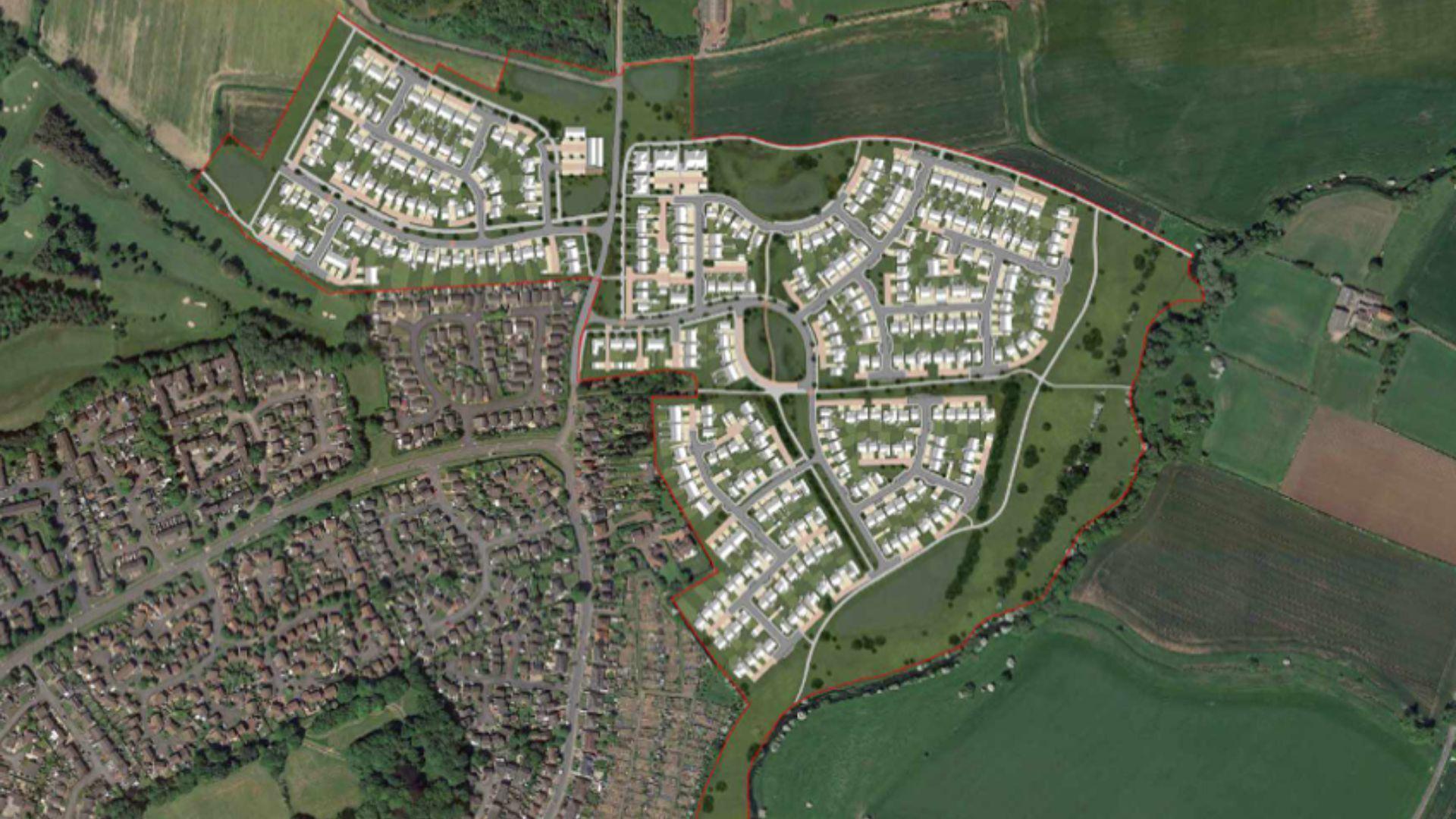Fears raised over house plan near veteran wood
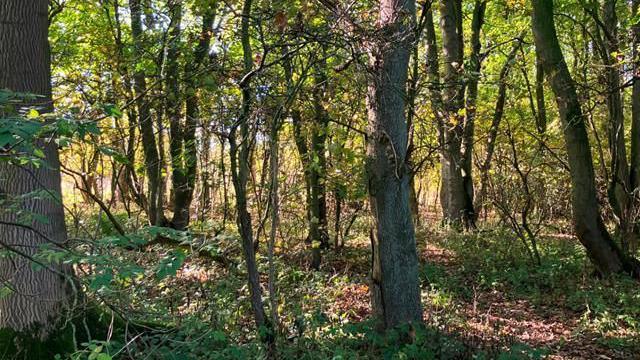
Skerningham Woods in Darlington could have 4,500 houses built next to it by 2036
- Published
Farmland, trees and hedgerows are at risk after plans for a housing development next to veteran woodland were submitted, protesters have said.
Plans have been sent to Darlington Borough Council for the first phase of the Skerningham Garden Village scheme, external, with a decision date yet to be announced.
The proposals for land adjacent to Skerningham Woods include building 450 houses, a shop and pub.
Developer Skerningham Estates Ltd has been approached for comment.
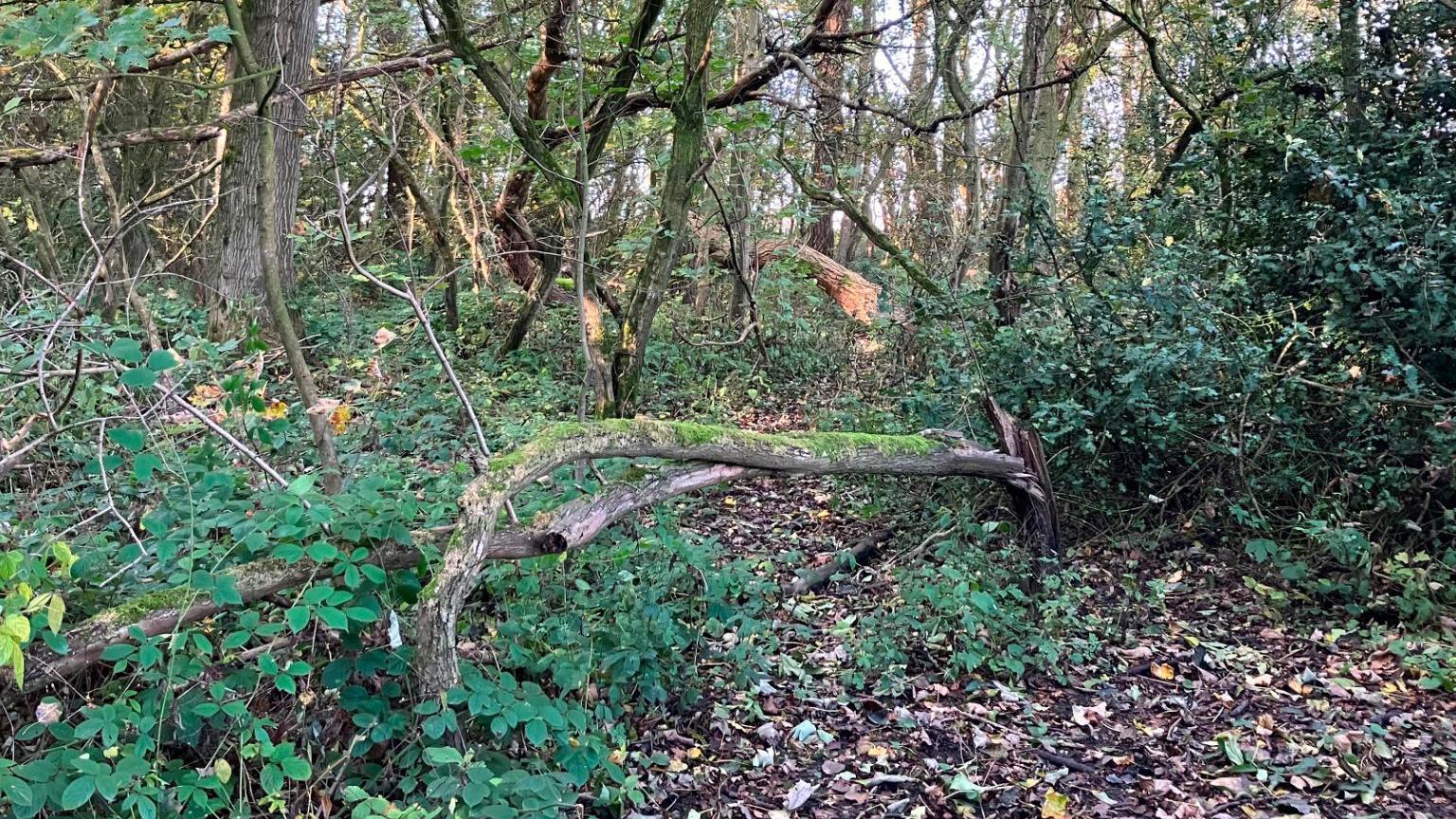
Skerningham Woods, to the north of Darlington, is home to birds including skylarks
Darlington Green Party and Skerningham Woodland Action Group are fighting the decision to build on farmland close to the wood.
Concerns about the effect on the environment, infrastructure such as schools, drainage and the sewage network, and the mental health of those who go there to connect with nature have been raised by nearby residents.
The overall Skerningham Garden Village allocation is made up of a 1,203-acre (487-hectare) site near the Whinfield, Beaumont Hill, Great Burdon, and Barmpton areas of Darlington.
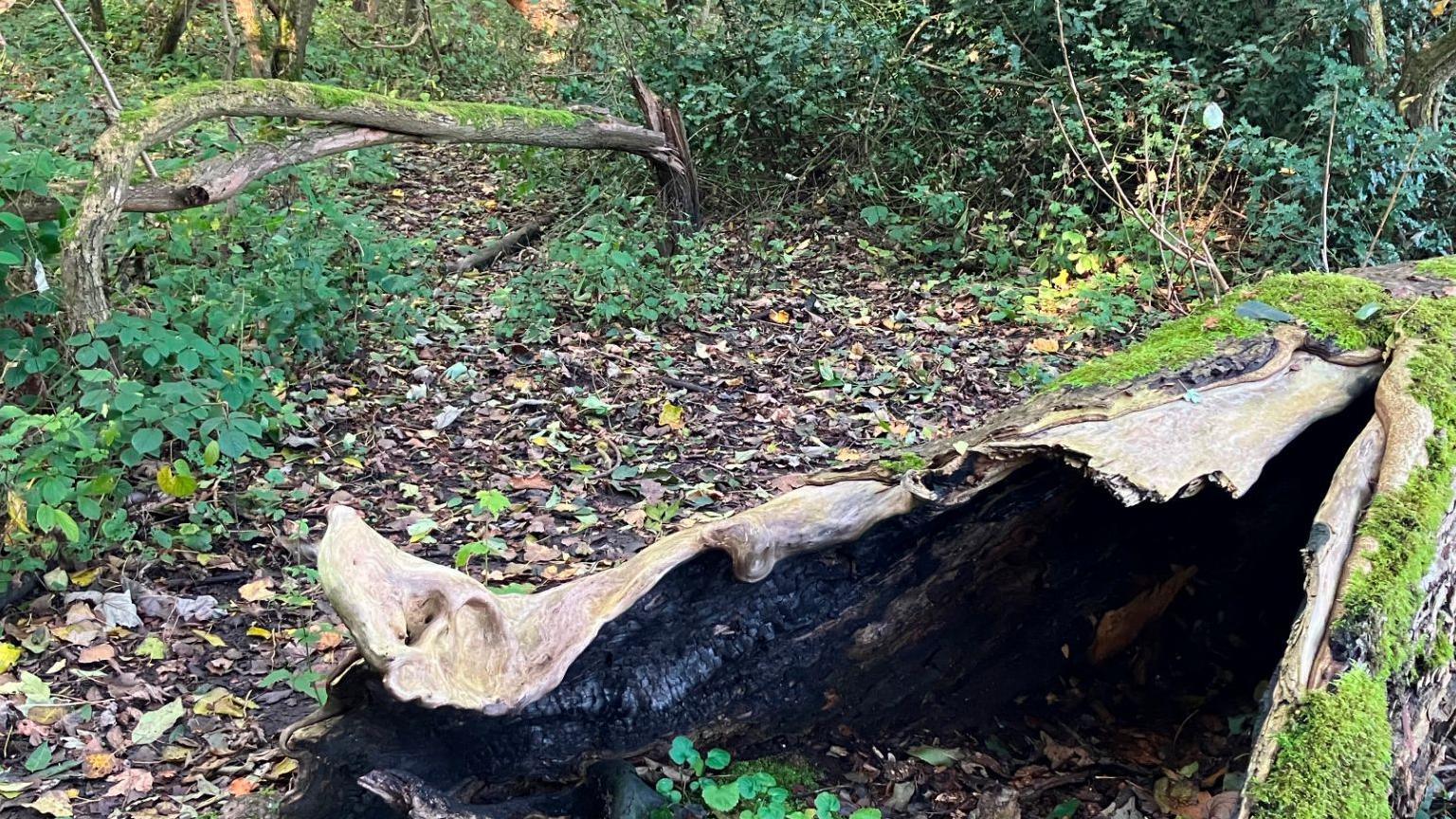
Plans for the first 450 homes have already been submitted to Darlington Borough Council
The initial plan includes 450 houses, with provision for 90 affordable homes.
By 2036, 4,500 homes are proposed for the site.
Matthew Snedker, leader of the Green group of councillors at Darlington Borough Council, said the scheme was "way oversized" and would create "urban sprawl".
He said it would have an adverse impact on anyone living towards the north-east of the town, with all traffic forced to use a narrow road.
Mr Snedker also said the plans would not solve the housing crisis, adding: "These houses will not be affordable, they won’t be accessible and they won’t be sustainable."
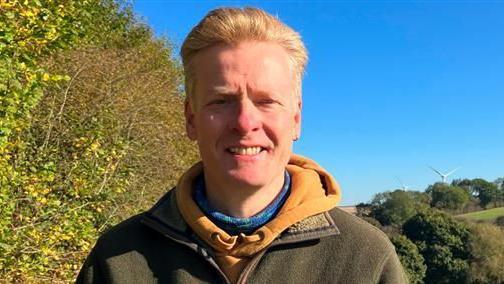
Matthew Snedker, of Darlington Green Party, said the plans are "way oversized"
There are also fears the scheme would disrupt wildlife and the environment, with the area home to a large number of threatened bird species, as well as foxes and deer.
Kathy Barley, leader of Skerningham Woodland Action Group, said: "We all need that connection with the natural world and access to it, for our mental health."
She said the area near Barmpton Lane was a hunting ground for barn owls and habitat for skylarks, which were "so rare these days".
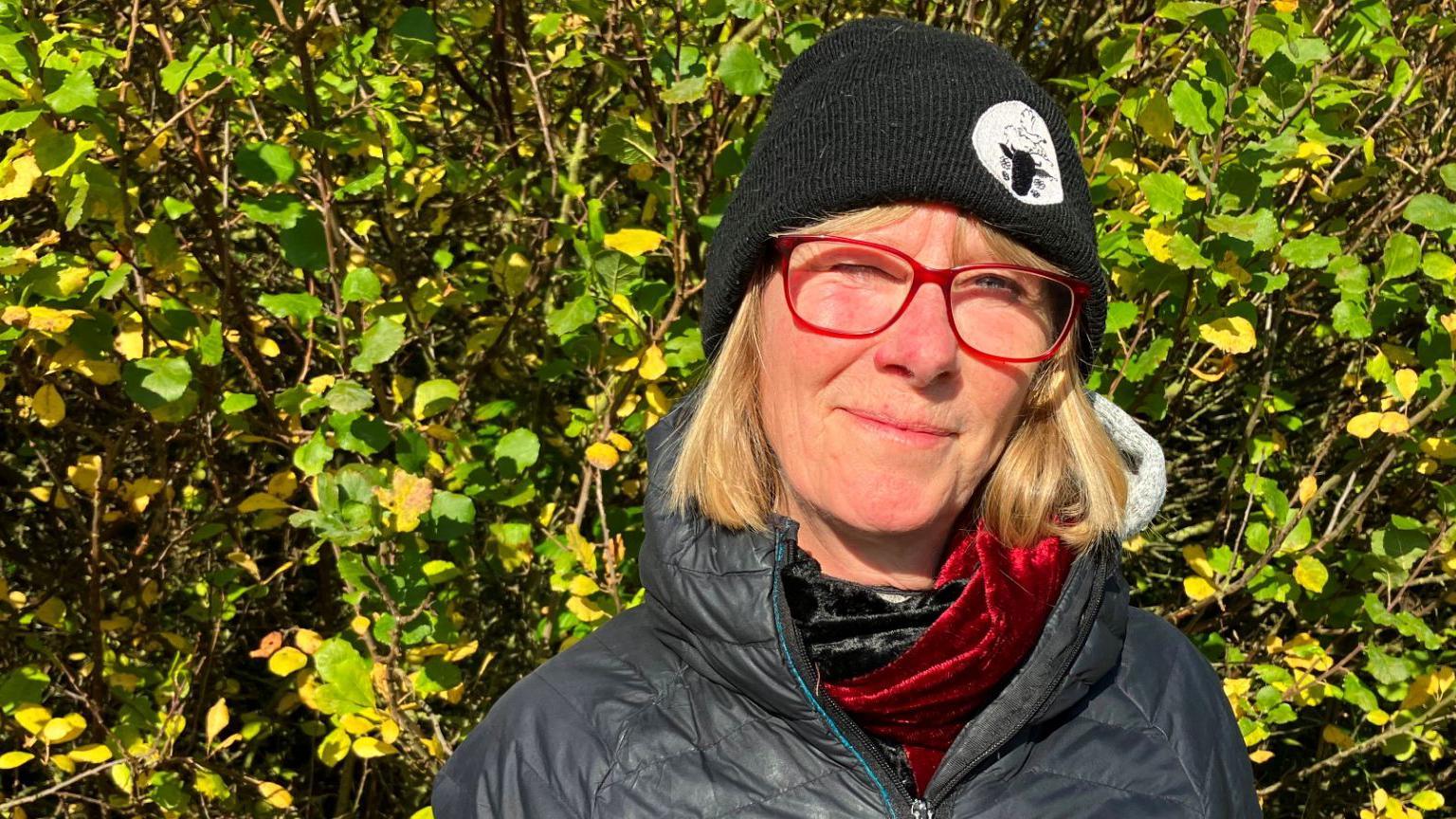
Kathy Barley says the impact on wildlife was a major concern
Ms Barley said: "Skylarks are these tiny little birds that flutter and make a beautiful song, but they need farmland.
"This is why this area is just so important for those species and for the connectivity of the ecology of the area."
Follow BBC Tees on X, external Facebook, external, Nextdoor and Instagram, external. Send your story ideas to northeastandcumbria@bbc.co.uk.
Related topics
- Published22 August 2024
